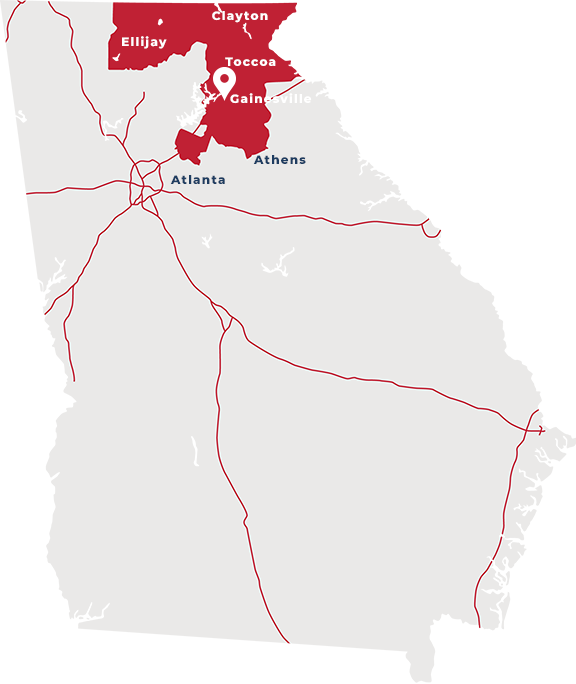
In the News
WASHINGTON EXAMINER: Taxing Americans' patience
Washington,
August 25, 2022
Rep. Andrew Clyde has rare bragging rights: The Georgia Republican fought the Internal Revenue Service and won. Years before Clyde's 2020 election to the House, representing northeastern Georgia's 9th Congressional District, he ran a thriving gun store business. Clyde Armory eventually grew to $12 million in annual sales and 25 employees. Then, in 2013, the 28-year Navy veteran (11 years of active duty and 17 in the reserves) was subject to civil asset forfeiture by the IRS. To the tune of $940,000. Clyde, though, fought the IRS action in court and got most of his money back, obtaining a $900,000 refund — although, he added in an interview with the Washington Examiner, he was out in legal costs that swelled into the six-figures. Not surprisingly, Clyde is deeply skeptical of a new provision in federal law that plans to fund 87,000 new IRS agents. “It's not time to expand the IRS. It's time to eliminate the IRS,” Clyde said. “I didn't know much about the IRS before I had to deal with them individually. And they are way worse than I ever imagined them to be.” IRS expansion is part of the Inflation Reduction Act, a $740 billion spending law focusing mainly on tax, health, and climate policies. President Joe Biden signed the bill into law on Aug. 16 after the House and Senate approved it on party-line votes. The law includes $80 billion in new funding for the IRS, which Democrats say is necessary to catch wealthy tax cheats who are denying revenue to federal coffers while also replacing retiring agents. But Republicans fear the expansion of the tax collection agency’s budget will result in increased audits and a greater scrutiny of middle-class taxpayers. Clyde points to his own experience with the IRS, which began on April 12, 2013. That's when the agency informed him out of nowhere that it had confiscated $940,313 from his gun retailer, Clyde Armory. The IRS accused Clyde of “structuring,” or moving money in a way that doesn’t trigger certain mandatory reports, in order to hide illegal streams of revenue. Banks are required by law to report deposits of $10,000 or more to the federal government — criminals, however, have tried to go around this by keeping deposits under $10,000 to avoid the reports. So, the IRS questioned why Clyde had been depositing business checks into his bank account in increments under $10,000. Since the IRS at the time didn’t need probable cause to engage in civil asset forfeiture, it effectively shifted the burden of proof to Clyde to prove the innocence of his small business. The future congressman had a ready explanation — he had kept his deposits under $10,000 because his insurance limited coverage for losses due to robbery over $10,000. Yet this all happened to coincide with a rise in the use of an actual structuring tactic by real financial fraudsters and money launderers. “This entire Bank Secrecy Act that was put in place by Congress in 1970 was to go after illegally made money, not legally made money,” Clyde said of the policy that triggered his asset forfeiture. “But all the IRS wanted was money, and they went after what appeared to be low-hanging fruit. If you go after legal money, it's a whole lot easier to find because people aren't hiding it.” After an extensive audit, Clyde and his lawyers were able to prove that there was nothing to hide and that his money was made legally from his legitimate small business. The agency agreed, but said he needed to forfeit $325,000 in order to get back $615,000. “I'm, like, 'What? No, I'm not going do that,'" Clyde said. "Why would I do that? I've not done anything wrong.’” He resolved to pursue the matter until the IRS returned the entire sum it took. “When I said no, then they went to my attorney and said, ‘Well, you know, we could charge him criminally for this if you don't agree to this.’ Well, that is a violation of legal ethics,” Clyde said. “You cannot threaten a criminal charge in order to get a civil monetary settlement.” Clyde eventually did get most of his money back after a court battle — but not without $150,000 in legal and court fees. Clyde didn't go away quietly, either. In 2015, he testified before the House Ways and Means Subcommittee on Oversight, along with two other business owners who went through similar experiences with IRS civil asset forfeiture. The hearing revealed that over 700 other business owners had experienced similar run-ins with the IRS during President Barack Obama's administration. Clyde said he was among the few who had the resources to fight the IRS, while some smaller businesses had to fold without any recourse. The congressman's efforts culminated with the passage of the Clyde-Hirsch-Sowers RESPECT Act, which former President Donald Trump signed into law in 2019. It prohibits the IRS from seizing assets based on structuring violations if the money comes from a legal source and allows targets to challenge the seizures at prompt hearings. Meanwhile, Clyde in 2020 ran for Georgia's open 9th Congressional District seat, located in the Peach State's northeast corner along the South Carolina and Tennessee lines. Now, as a House member set to win reelection for the deep-red seat (redrawn a bit due to redistricting), Clyde is in a position to affect IRS policy. Clyde said his past experience with the agency opened his eyes to how “draconian the IRS is and how intimidating they can be.” And it also made him into a warrior against the agency, seeking nothing less than its elimination. Adding 87,000 IRS employees over the next decade is "increasing an already bloated bureaucracy," Clyde said. "That's going to make them more inefficient and not more efficient, and it's also going to target hard-working American citizens.” The Biden administration and congressional Democrats see it differently. They argue the IRS has been depleted in recent years, making it less effective. Adding funding and staff will pay for itself, they contend, because the agency will be better able to identify cheating on taxes. "Republicans want to kill over 100,000 new American jobs that will get you your tax refund quicker and require the super wealthy to stop exploiting tax loopholes and finally pay their fair share like the rest of us," Rep. John Garamendi (D-CA) tweeted on Aug. 17. Democrats also note that IRS Commission Charles Rettig, in an Aug. 4, 2022, letter to senators, said that the agency would not crack down on those making less than $400,000. Rettig, who was appointed by former President Donald Trump, explained that the beefed-up enforcement of tax evasion would only target corporations and the richest 1-2% of households. The IRS will reportedly also use the new funds to replace many of the nearly 50,000 employees who could retire over the next five years. Many of the thousands of newly created IRS jobs beyond those positions would be in customer service and information technology, not collections agents. For Clyde, though, the tax agency is unsalvagable. He's a big advocate of the Fair Tax Act of 2021, a bill that would abolish the IRS and overhaul the entire U.S. tax system. If enacted, it would seek to abolish all taxes other than a 23% sales tax (a tall order, as it would necessitate overturning the 16th Amendment that allows for a federal income tax). States would continue to manage the sales tax collection, so there would be no need for a federal tax agency. That proposal isn't remotely close to becoming law, even if Republicans win the presidency and both chambers of Congress over the coming two election cycles. But that broader fight, Clyde said, is to make it as difficult as possible for the IRS to assault working people fiscally. “When the full force of a federal agency can be weaponized to come against individual citizens, then that tremendously increases the power of the government, and it's no longer a government run by the people. It's the people run by the government,” he said. “And that's a very dangerous place.” |



Office Locations
Gainesville, GA 30501
Phone: (470) 768-6520


